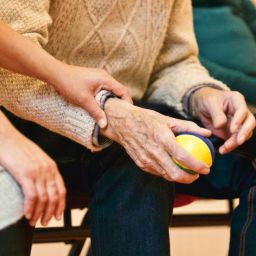
A recent survey of 2,000 UK school teachers has revealed some frightening news about the mental health of our children and adolescents. Responding to a survey by the NASUWT union, almost all teachers (98%) said they had come into contact with pupils who are experiencing mental health issues. In February a survey commissioned by the Varkey Foundation ranked British teenagers and young adults in 19th place out of 20 participating countries when comparing their mental health and levels of stress, anxiety, and depression.
 In 2012 the Children’s Society Good Childhood Report found that around 10% of children and young people (aged 5-16 years) have a clinically diagnosable mental problem, yet 70% of children and adolescents who experience mental health problems have not had appropriate interventions at a sufficiently early age.
In 2012 the Children’s Society Good Childhood Report found that around 10% of children and young people (aged 5-16 years) have a clinically diagnosable mental problem, yet 70% of children and adolescents who experience mental health problems have not had appropriate interventions at a sufficiently early age.
A single session of self hypnosis instruction has been found to resolve anxiety based abdominal pain symptoms in 3 out of 4 paediatric patients and clinical research has shown that children and adolescents respond extremely well to hypnotherapy for other anxiety related complaints and insomnia.
Dr Marc Bush, chief policy advisor at charity YoungMinds said: “We know from our research that children and young people face a huge range of pressures, including stress at school, body image issues, bullying on and offline, around-the-clock social media and uncertain job prospects.”
Childline, a telephone and internet chat counselling service for children reported that they delivered over 300,000 counselling sessions  in the 2015/2016 financial year with the top concerns raised by children being low self-esteem/unhappiness, family relationships, and bullying/online bullying. 1 in 3 Childline counselling sessions related to mental health and wellbeing issues.
in the 2015/2016 financial year with the top concerns raised by children being low self-esteem/unhappiness, family relationships, and bullying/online bullying. 1 in 3 Childline counselling sessions related to mental health and wellbeing issues.
Teachers report that “Students generally don’t know how to deal with any stresses in their lives so it tends to present itself through anger and lashing out or crying.”
There are many things that you can do that will help and prevention is always better than cure. Some of the most important things you can do are to listen and to provide emotional support. Children learn through modelling, so providing a good example to them of effective communication and problem-solving skills is a very important weapon in helping fight the onset of stress and anxiety childhood mental health issues.
The Mental Health Foundation believes that simple things such as ensuring your child is in good physical health; is eating a balanced diet and getting regular exercise, and is part of a family that’s happy and communicates with each other are effective ways of helping ensure your child remains mentally healthy. Connections to the community and a sense of belonging, both through schools and outside activities are also important for childhood mental wellbeing.
Limiting media access can also be helpful if your child is showing signs of anxiety. The NSPCC reported earlier this year that young callers to their Childline service reported being distressed by world events such as Brexit, the US election, and increasingly regular terrorism reports. Limiting social media access can also help to improve the stress and anxiety levels of your children, allowing them time to switch off and be present in the moment.
However, some children are in need of more formal interventions to support them through their time of crisis. The National Council for Hypnotherapy, which has over 200 trained and qualified therapists who specialise in working with children on its directory across the UK, says that hypnotherapy can be a fast, effective and drug free treatment for a range of children and adolescent’s mental health issues.
 If caught and treated early, childhood mental health problems can resolve quickly and completely. Most hypnotherapists are happy to have a no-obligation meeting with you and your child to discuss these problems and make suggestions for intervention.
If caught and treated early, childhood mental health problems can resolve quickly and completely. Most hypnotherapists are happy to have a no-obligation meeting with you and your child to discuss these problems and make suggestions for intervention.
Visit our database of hypnotherapists to find someone local to you.











